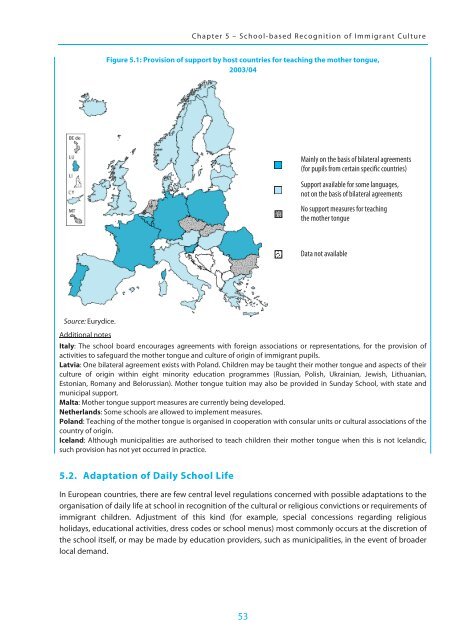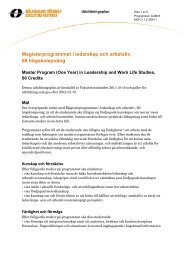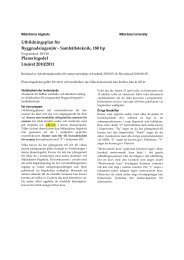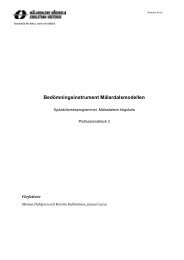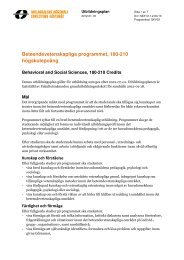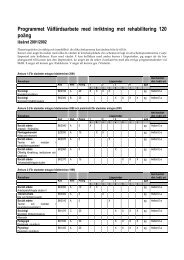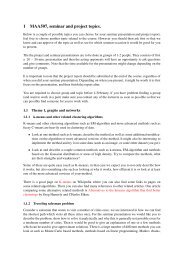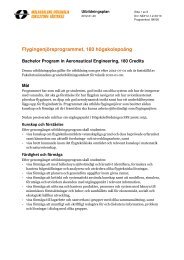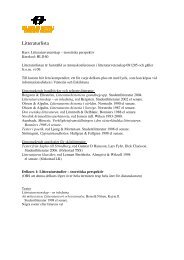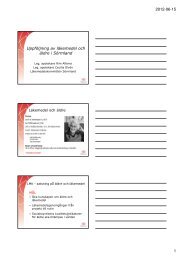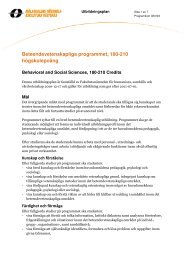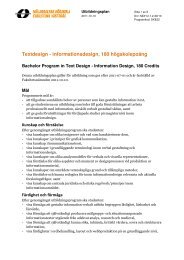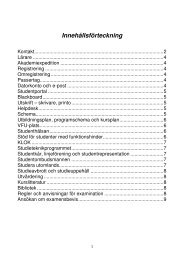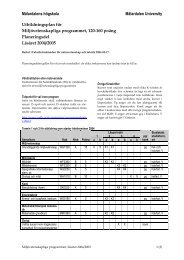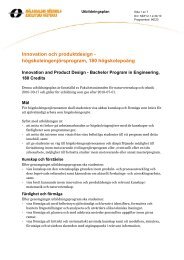Chapter 5 – School-based Recognition of <strong>Immigrant</strong> CultureFigure 5.1: Provision of support by host countries for teach<strong>in</strong>g the mother tongue,2003/04Ma<strong>in</strong>ly on the basis of bilateral agreements(for pupils from certa<strong>in</strong> specific countries)Support available for some languages,not on the basis of bilateral agreementsNo support measures for teach<strong>in</strong>gthe mother tongueData not availableSource: Eurydice.Additional notesItaly: The school board encourages agreements with foreign associations or representations, for the provision ofactivities to safeguard the mother tongue and culture of orig<strong>in</strong> of immigrant pupils.Latvia: One bilateral agreement exists with Poland. <strong>Children</strong> may be taught their mother tongue and aspects of theirculture of orig<strong>in</strong> with<strong>in</strong> eight m<strong>in</strong>ority education programmes (Russian, Polish, Ukra<strong>in</strong>ian, Jewish, Lithuanian,Estonian, Romany and Belorussian). Mother tongue tuition may also be provided <strong>in</strong> Sunday School, with state andmunicipal support.Malta: Mother tongue support measures are currently be<strong>in</strong>g developed.Netherlands: Some schools are allowed to implement measures.Poland: Teach<strong>in</strong>g of the mother tongue is organised <strong>in</strong> cooperation with consular units or cultural associations of thecountry of orig<strong>in</strong>.Iceland: Although municipalities are authorised to teach children their mother tongue when this is not Icelandic,such provision has not yet occurred <strong>in</strong> practice.5.2. Adaptation of Daily School LifeIn <strong>Europe</strong>an countries, there are few central level regulations concerned with possible adaptations to theorganisation of daily life at school <strong>in</strong> recognition of the cultural or religious convictions or requirements ofimmigrant children. Adjustment of this k<strong>in</strong>d (for example, special concessions regard<strong>in</strong>g religiousholidays, educational activities, dress codes or school menus) most commonly occurs at the discretion ofthe school itself, or may be made by education providers, such as municipalities, <strong>in</strong> the event of broaderlocal demand.53
<strong>Integrat<strong>in</strong>g</strong> <strong>Immigrant</strong> <strong>Children</strong> <strong><strong>in</strong>to</strong> <strong>Schools</strong> <strong>in</strong> <strong>Europe</strong>Some examples of formal adaptation with respect, first of all, to religious holidays not referred to <strong>in</strong> theschool calendar or timetable are cited <strong>in</strong> the national contributions.In Belgium (the Flemish Community), legislation provides for absence from school for the ‘celebrationof festivals constitut<strong>in</strong>g an <strong>in</strong>herent element of a pupil's philosophical beliefs if recognised by theConstitution’. Recognised religions or denom<strong>in</strong>ations are Anglicanism, Islam, Judaism, Catholicism,Orthodoxy and Protestantism.In Italy, Jewish pupils may refra<strong>in</strong> from attend<strong>in</strong>g school on Saturday if it is a day <strong>in</strong> the schooltimetable. This arrangement has been established under an agreement between the Italiangovernment and the Unione della Comunitá ebraiche (Union of Italian Jewish Communities). However,there are no agreements of a similar k<strong>in</strong>d with other religious communities.In Germany, pupils may obta<strong>in</strong> permission from the school supervisory authorities not to attendclasses on religious holidays. The situation is similar <strong>in</strong> Sweden, <strong>in</strong> which agreements on how manydays of leave may be granted to pupils are reached at local level. In neither case is there any <strong>in</strong>dicationas to which religions qualify for this k<strong>in</strong>d of leave. The situation is similar <strong>in</strong> Latvia, <strong>in</strong> which religiousholidays are observed where necessary <strong>in</strong> state and municipal educational <strong>in</strong>stitutions. In Norway,pupils who belong to a religious community outside the Church of Norway, may on application begranted leave of absence from school on holidays for the community concerned.There are a few similar examples of adjustment with respect to specific educational activities, forexample the adaptation of group activities, such as sports and music.In Germany, compulsory ‘physical education and swimm<strong>in</strong>g <strong>in</strong>struction’ is usually taught <strong>in</strong> groups<strong>in</strong>clud<strong>in</strong>g both sexes. However, schools must offer to teach boys and girls separately if immigrantparents so request. If this is not possible, an immigrant child may be exempt from the <strong>in</strong>structionconcerned. Similarly, <strong>in</strong> Sweden compulsory ‘physical education and health’ is also usually taught <strong>in</strong>groups <strong>in</strong>clud<strong>in</strong>g both sexes, but schools can choose to teach boys and girls separately, particularly <strong>in</strong>the case of Muslims.In F<strong>in</strong>land it is generally possible for pupils to be exempted from <strong>in</strong>volvement <strong>in</strong> sports (e.g.swimm<strong>in</strong>g), music lessons, school festivities, etc.The daily act of collective worship <strong>in</strong> schools <strong>in</strong> the United K<strong>in</strong>gdom (England and Wales) mustnormally be wholly or ma<strong>in</strong>ly of a broadly Christian character. Most schools should be able to <strong>in</strong>cludeall pupils <strong>in</strong> their act of collective worship, but where, <strong>in</strong> view of the family background of some or allpupils, the school feels that a broadly Christian act of worship is not suitable, the head teacher mayapply to the local Stand<strong>in</strong>g Advisory Council on Religious Education (SACRE) to have the Christiancontent requirement lifted. Parents also have a right to withdraw their children on an <strong>in</strong>dividual basisfrom the daily act of collective worship <strong>in</strong> their school.How the matter of dress codes is handled depends, first, on whether schools require their pupils to wearuniform, or whether there are other official conventions relat<strong>in</strong>g to dress.In Ireland, pupil or student dress codes are a matter for <strong>in</strong>dividual school managements and, generally,where a religious or cultural requirement is out of keep<strong>in</strong>g with the school uniform a compromise isagreed between the family and the school. Such a compromise might <strong>in</strong>clude wear<strong>in</strong>g a requiredgarment under – or together with – the uniform.In the United K<strong>in</strong>gdom (England, Wales and Scotland) the Race Relations (Amendment) Act 2000places a specific duty on schools to assess the impact of their policies on m<strong>in</strong>ority ethnic pupils, staffand parents. School policies such as uniform/dress codes fall with<strong>in</strong> these general requirements, andschools are expected to be sensitive to the needs of different cultures, races and religions. <strong>Schools</strong> areexpected to accommodate these needs with<strong>in</strong> a school uniform policy, for example by allow<strong>in</strong>g Muslimgirls to wear appropriate dress and Sikh boys to wear traditional headdress.54


